Matt Deckard
Man of Action
- Messages
- 10,045
Anybody else here ever watch the felt wearing Dr Who?






 Alden 403 Moc Toe Boot - Brown Chromexcel - $680 The classic "Indy" style Alden Boot in the classic Horween brown Chromexcel.
Alden 403 Moc Toe Boot - Brown Chromexcel - $680 The classic "Indy" style Alden Boot in the classic Horween brown Chromexcel.  Grant Stone Diesel Boot Dark Olive Chromexcel - #395 Goodyear welted, Horween Chromexcel, classic good looks.
Grant Stone Diesel Boot Dark Olive Chromexcel - #395 Goodyear welted, Horween Chromexcel, classic good looks.  Himel Bros. - The Ross Mk. 1 Leather Jacket Classic D-pocket motorcycle/aviator style jacket.
Himel Bros. - The Ross Mk. 1 Leather Jacket Classic D-pocket motorcycle/aviator style jacket. 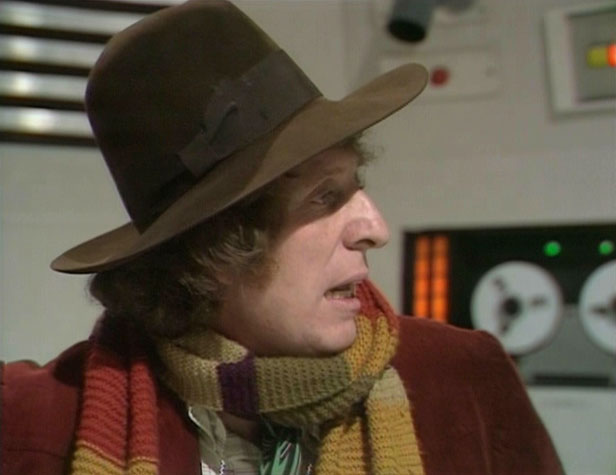
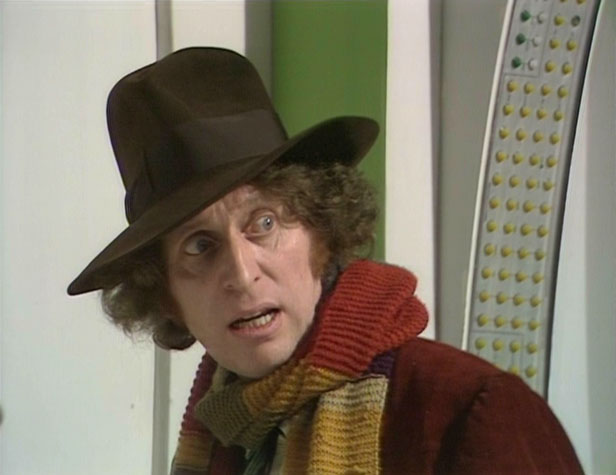

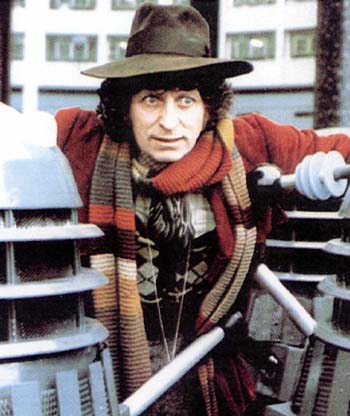


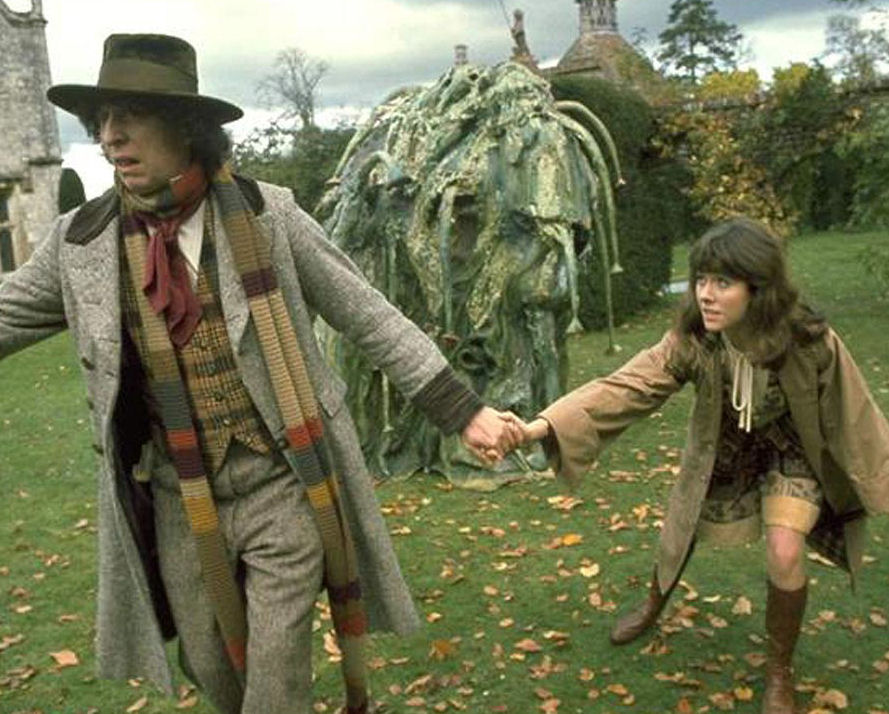
Matt Deckard said:Herbert Johnson claims to have made the hats for Baker in Dr. Who.
I've seen a couple of the Velour style ones from HJ pass by on Ebay. They always look cool.
The beauty comes in the way he just doesn't care how it's worn... he just wear it.
If you watch it episode by episode like I crazily did, you can see the hats get more mashed and shrink here and there as time goes by.
No the image is not reversed... he just stuck it on willy nilly.
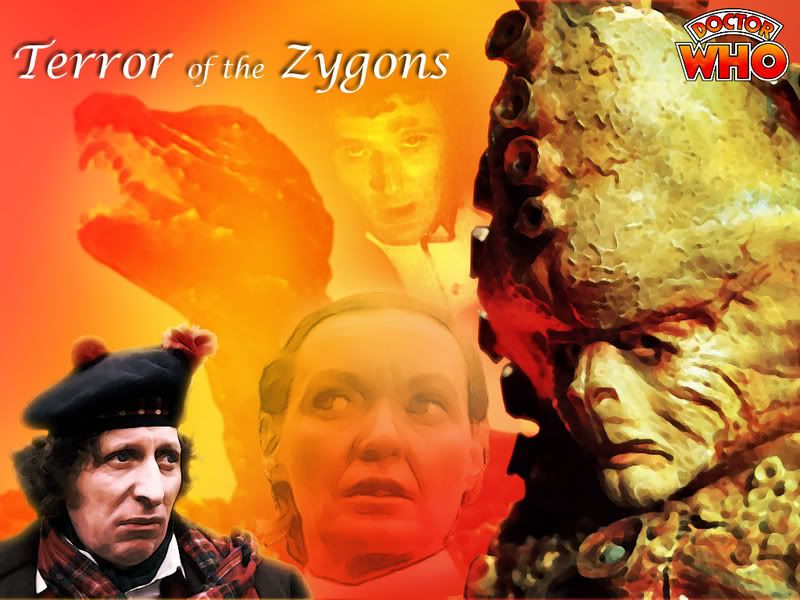

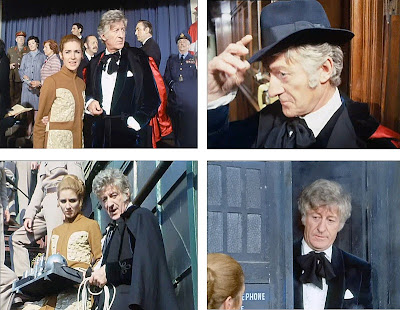
Charlie Huang said:That's Doctor Who, not Dr. Who. 'Who' is not a proper name and 'Doctor' is not a title in this context.
Alias "The Doctor"
Quite apart from his name, why the Doctor uses the title of "The Doctor" has never been fully explained on screen. The Doctor, at first, said that he was not a physician, often referring to himself as a scientist or an engineer, saying later in the series that he was "a Doctor of everything." However he does occasionally show medical knowledge and has stated on separate occasions that he studied under Joseph Lister and Joseph Bell. In The Moonbase, the Second Doctor mentions that he studied for a medical degree in Glasgow during the 19th Century. He has also been mocked by his fellow Time Lords for adhering to such a "lowly" title as "Doctor," although in The Armageddon Factor he tells Drax that he achieved his doctorate, indicating it was at least a somewhat respectable title. In "The Girl in the Fireplace," he draws an analogy between the title and Madame de Pompadour's. In "The Sound Of Drums," the Master remarks to the Doctor that they both chose their names, and that it was sanctimonious of the Doctor to identify himself as "the man who makes people better;" one of the Master's assistants calls him a doctor of "everything." The Fourth Doctor states that his companion, Harry Sullivan, is a Doctor of medicine, while he is "a doctor of many things" (Revenge of the Cybermen), but on another occasion states that his doctorate is only honorary. In talking with Harry in Robot, the Doctor states "You may be a doctor, but I'm the Doctor. The definite article, you might say."
The Telos novella Frayed by Tara Samms (which takes place prior to "An Unearthly Child") has the First Doctor being given that title by the staff of a besieged human medical facility on the planet Iwa, suggesting at the end that the Doctor liked the official title so much that he adopted it. However, this does not quite explain why the Time Lords use the same title in addressing him. The same story also has Jill, a young girl living in the facility, naming the Doctor's granddaughter "Susan" after Jill's mother. The canonicity of all non-television sources is uncertain.
To make up for his lack of a practical name, the Doctor often relies upon convenient pseudonyms. In The Gunfighters, the First Doctor uses the alias Dr. Caligari. In The Highlanders, the Second Doctor assumes the name of "Doctor von Wer" (a German approximation of "Doctor Who"), and signs himself as "Dr. W" in The Underwater Menace. The Eighth Doctor's companion Grace briefly refers to him by the alias "Dr. Bowman" in the 1996 Doctor Who television movie.
In The Wheel in Space, his companion Jamie McCrimmon, reading the name off some medical equipment, tells the crew of the Wheel that the Doctor's name is "John Smith." The Doctor subsequently adopts this alias several times over the course of the series, often prefixing the title "Doctor" to it. This name is particularly prominent during his third incarnation when, as scientific advisor to UNIT, he gives it to Brigadier Lethbridge-Stewart to be put on his official credentials. The Tenth Doctor is using the name when he unsuspectingly meets Sarah Jane Smith whom he had not seen for several incarnations. Suspicious but in public, she mentions that she used to know a man who sometimes used that name. He explains, "It's a very common name." In response, she remarks, "He's a very un-common man."
In the audio adventure, The Sirens of Time, when the 5th Doctor is asked his name, this conversation ensues:
"I'm the Doctor."
"Doctor? That's a profession, not a name."
"It's all I have."
In "New Earth", it is implied that the Doctor is part of the prophecy of the Face of Boe and is referred to as "The Lonely God." In "Tooth and Claw", having landed in Scotland, the Tenth Doctor introduces himself as "Dr. James McCrimmon," from the township of Balamory, in reference to the Second Doctor's companion Jamie. Later in that episode, the Doctor is knighted by Queen Victoria as "Sir Doctor of TARDIS;" she then declared him an enemy of the crown and banished him for all time, with Torchwood in part created to enforce this exile.
To his greatest enemies, the Daleks, the Doctor is known as the Ka Faraq Gatri, the "Bringer of Darkness," or "Destroyer of Worlds." This is first mentioned in the novelisation of Remembrance of the Daleks by Ben Aaronovitch and subsequently taken up in the spin-off media, particularly the Virgin New Adventures books and the Doctor Who Magazine comic strip. Davros uses the title "Destroyer of Worlds" to describe the Doctor in "Journey's End." In "The Parting of the Ways," the Doctor claims that the Daleks call him "The Oncoming Storm" — this name is used by the Draconians (whose word for it is "Karshtakavaar") to refer to the Doctor in the Virgin New Adventures novel Love and War by Paul Cornell.
In The End of Time, it is mentioned that after smiting a demon in the 13th century, the residents of a convent called the Doctor the "sainted physician."
The series has also occasionally toyed with the Doctor's identity (or lack thereof). In the first part of The Mysterious Planet, the Doctor suggests writing a thesis on "Ancient Life on Ravolox, by Doctor...", but is interrupted by Perpurgilliam "Peri" Brown. In The Armageddon Factor, the Time Lord Drax addresses the Fourth Doctor as "Thete," short for "Theta Sigma." Later, in The Happiness Patrol, this was clarified as a nickname from the Doctor's University days; he is called by this name again in the Paul Cornell novel Goth Opera. In Remembrance of the Daleks, the Seventh Doctor produces a calling card with a series of pseudo-Greek letters inscribed on it (as well as a stylised question mark). This may be a reference to Terrance Dicks's and Malcolm Hulke's book The Making of Doctor Who (1972), which claims that the Doctor's true name is a string of Greek letters and mathematical symbols.
The question mark motif was common throughout the eighties, in part as a branding attempt. Beginning with season eighteen, the Fourth through Seventh Doctors all sported costumes with a red question mark motif (usually on the shirt collars, except for the Seventh Doctor — it appeared on his pullover and in the shape of his umbrella handle). In the 1978 serial The Invasion of Time, the Fourth Doctor is asked to sign a document; although the signature itself is not directly seen on screen, his hand movements clearly indicate that he signs it with a question mark. A similar scene occurs with the Seventh Doctor in Remembrance of the Daleks.
In an interview with The Age in 2003, Tom Baker mentioned that the Doctor is called so because he is "a doctor of time and relative dimension in space".[8] Apart from being called a doctor of the TARDIS, the Doctor has also been referred to as just a "doctor of time travel."[9]
In "The Lodger", the Eleventh Doctor states "I'm the Doctor, well they call me The Doctor, I don't know why; I call me The Doctor, I still don't know why".